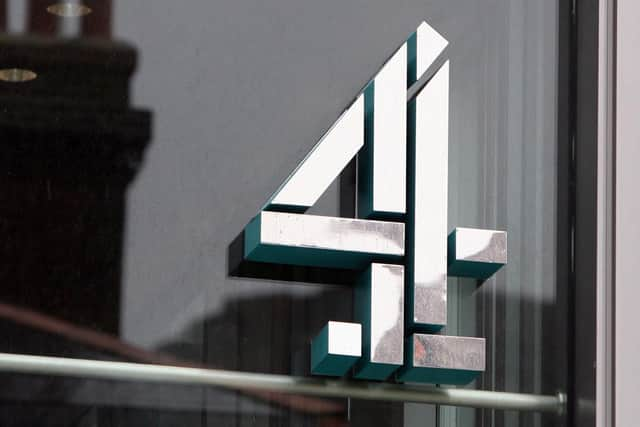Channel 4: Overwhelming majority reject privatisation plans during consultation
Almost 96 per cent of the 55,737 organisations and individuals who took part in the Government’s consultation on the TV channels said they did not support the privatisation of Channel 4, while 91 per cent said they did not think it would be more sustainable under a private owner.
According to a Government report, many also argued that privatisation would have “an overall negative impact” on audiences as it “could reduce the range and diversity of Channel 4’s programme output”.
Advertisement
Hide AdAdvertisement
Hide AdIt comes as Culture Secretary Nadine Dorries has today laid out wide ranging reforms of broadcasting in the UK, in a White Paper which laid out the Government’s belief that public ownership is constraining Channel 4’s “ability to respond to the challenges and opportunities” of the “changing broadcast market”.


The vast majority of those who took part in the consultation - which closed last September - said the broadcaster is “already sustainable and thriving in the current broadcasting landscape” and it has “already adapted appropriately to the digital age” by developing a successful streaming platform called All 4.
But the Government said it is concerned Channel 4 will struggle to compete with streaming giants like Netflix in the coming year, as TV advertising revenues continue to fall, and borrowing restrictions, which are set out in legislation, could have a detrimental long-term impact on the publicly-owned broadcaster.
While 94 per cent of respondents also said Channel 4 should continue providing jobs, opportunities and investment outside of London.
Advertisement
Hide AdAdvertisement
Hide AdMany argued that Channel 4 was “already delivering on its contribution to levelling up”, after it set up a new headquarters in Leeds and hubs in Bristol and Glasgow, and claimed they have driven investment and “provided ‘catalysts’ for other creative organisations” to set up offices outside the capital.
Some were concerned a private buyer would “put profits and efficiencies before levelling up” and re-concentrate spending in creative industries in London and the South East.
But the Government said Channel 4’s network and its “ability to speak to a diverse range of audiences across the UK” are “attractive assets” that a buyer “will look to nurture and develop”.
The White Paper released this afternoon set out Ministers’ belief that “now is the right time for the Government to pursue a change of ownership of Channel 4” as Ministers have a “responsibility” to look to the future when it comes to public service broadcasting.
Advertisement
Hide AdAdvertisement
Hide Ad“We believe that the investment in content and technology needed to succeed in this rapidly changing media landscape will be delivered at greater scale and with greater pace under private ownership, supported by private-sector capital, rather than asking the taxpayer to bear the associated risk,” the document set out.
The plans also suggest that Channel 4’s regional obligations outside of London asnd England “will be maintained”.
The broadcaster opened its second base in Leeds last year and has been supporting hundreds of jobs in the city.
“The Government also recognises Channel 4’s commitment to levelling up” the paper said, “and its support for national and regional economies.”
Advertisement
Hide AdAdvertisement
Hide AdOvernight, it was briefed that the privatisation will end the restrictions on producing and selling its own content.
Ms Dorries wrote in the i newspaper this morning that the broadcaster had been “a true disruptor – shaking up schedules with new and daring content, while supporting a boom in our indie production sector”.
She added: “A sale would release Channel 4 from the outdated shackles of public ownership. It would allow it to turn on the private funding taps, and invest heavily in new technology and programming.”
Comment Guidelines
National World encourages reader discussion on our stories. User feedback, insights and back-and-forth exchanges add a rich layer of context to reporting. Please review our Community Guidelines before commenting.
